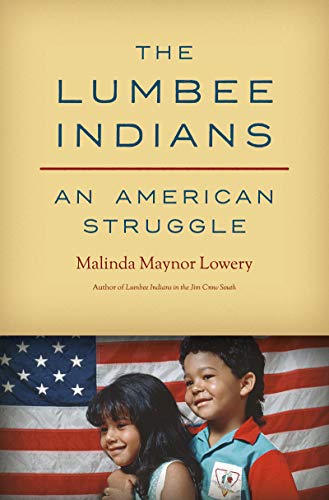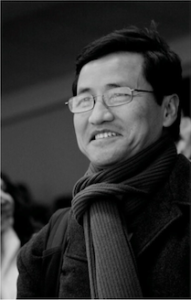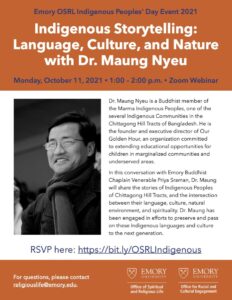Emory Climate Talk with artist Cannupa Hanska Luger
November 11, 2021, 4 PM EST
Location: Michael C. Carlos Museum, Ackerman Hall
In accordance with Emory University’s Gathering Policy, masks are required at this event.
If you would like to attend virtually through Zoom, click HERE.
Cannupa Hanska Luger, whose works are featured in the exhibition Each/Other: Marie Watt and Cannupa Hanska Luger will participate in the Emory Climate Talks series, which explores the scientific and social aspects of global climate change.
Cannupa Hanska Luger is a New Mexico-based multidisciplinary artist who uses social collaboration in response to timely and site-specific issues. Raised on the Standing Rock Reservation in North Dakota, he is an enrolled member of the Three Affiliated Tribes of Fort Berthold and is of Mandan, Hidatsa, Arikara, Lakota, and European descent. Luger produces multi-pronged projects that take many forms—through monumental installations that incorporate ceramics, video, sound, fiber, steel, new media, technology and repurposed materials, Luger interweaves performance and political action to communicate stories about 21st-century Indigeneity. This work provokes diverse audiences to engage with Indigenous peoples and values apart from the lens of colonial social structuring, and often presents a call to action to protect land from capitalist exploits. He combines critical cultural analysis with dedication and respect for the diverse materials, environments, and communities he engages.
Among other works, Luger will discuss The Mirror Shield Project (2016), a social engagement work, which invited the public to create mirrored shields for Water Protectors protesting the Keystone pipeline at Standing Rock. The project has since been formatted and used in various resistance movements across the nation.
This program is part of Cannupa Hanska Luger’s artist residency, made possible through the generous financial support of the Hightower Lecture Fund, the Michael C. Carlos Museum, and Emory University’s departments of Art History, English, Sociology, Anthropology, African American Studies, History, Film and Media Studies, and Women’s, Gender, and Sexuality Studies, the Native American and Indigenous Studies Initiative, and the James Weldon Johnson Institute for the Study of Race and Difference.



